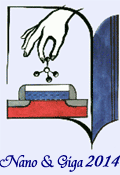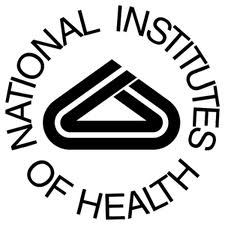
From Materials to Devices to System Architecture
Symposium and Spring School (Tutorial Lectures)
Phoenix, Arizona, March 10-14, 2014
 |
Nano and Giga Challenges in Electronics, Photonics and
Renewable Energy From Materials to Devices to System Architecture Symposium and Spring School (Tutorial Lectures) Phoenix, Arizona, March 10-14, 2014 |
| Oral Sessions | Poster Presentations | Publications | Networking | Awards | Contacts | Email Us |
|
Recent News and Highlights
Conference OverviewEnergy and information are essential elements for the development of human society which are interconnected. Processing and storage of information requires energy consumption, while the efficient use and access to new energy sources requires new information (ideas and expertise) and the design of novel systems such as photovoltaic devices, fuel cells and batteries. Semiconductor physics creates the knowledge base for the development of information (computers, cell phones, etc.) and energy (photovoltaics) technologies. The exchange of ideas and expertise between these two technologies is critical and expands beyond semiconductors. Efficient use of solar energy requires development of novel energy storage devices while biosystems provide new paradigms for the development of materials and devices for information (processing and storage) and energy (e.g. biofuel and artificial photosynthesis) technologies and biomedical applications (sensors and dignostics). Progress in information and renewable energy technologies requires miniaturization of devices and reduction of costs, energy and material consumption. The latest generation of electronic devices is approaching atomic dimensions; new materials are being introduced into electronics manufacturing at an unprecedented rate; and alternative technologies to mainstream CMOS are evolving. The low cost of natural energy sources have created economic barriers to the development of alternative and more efficient solar energy systems, fuel cells and batteries. However, there is emergent understanding that the sustainable development of human society requires use of new alternate sources of energy to natural gas and oil. Nanotechnology is widely accepted as a source of potential solutions in securing future progress for information and energy technologies. Our conference series is an interdisciplinary forum in education, research and innovations in the development of new materials, devices and systems for these key technologies. The NGC2014 conference (the 6th Nano and Giga Forum) invites academic and industrial researchers to present tutorial and original research papers dedicated to solving scientific and technological problems in the following areas of electronics, photonics and renewable energy: atomic scale materials design, bio- and molecular electronics, high frequency electronics, fabrication of nanodevices, magnetic materials and spintronics, materials and processes for integrated and subwave optoelectronics, nanoCMOS, new materials for FETs and other devices, nanoelectronics system architecture, nano optics and lasers, non-silicon materials and devices, chemical and biosensors,quantum effects in devices, nano science and technology applications in development of novel solar energy devices, and fuel cells and batteries. We also invite inventors, entrepreneurs and business leaders to explore the unique opportunity provided by our interdisciplinary forum for technical due diligence and potential commercialization of emerging new technologies. Hosted by Arizona State University the NGC2014 conference will include the spring school (tutorial lectures), symposium and satellite workshops. Our conferences have a high impact through publication of tutorial books and selected peer reviewed papers in reputable international journals. Our meetings are attended by world renowned experts and young talents alike. Sponsors and exhibitors are welcome and will be supported by the organizers in their needs for networking and marketing of their products and organizations. |
 |
 |
 |
||
 |
||||